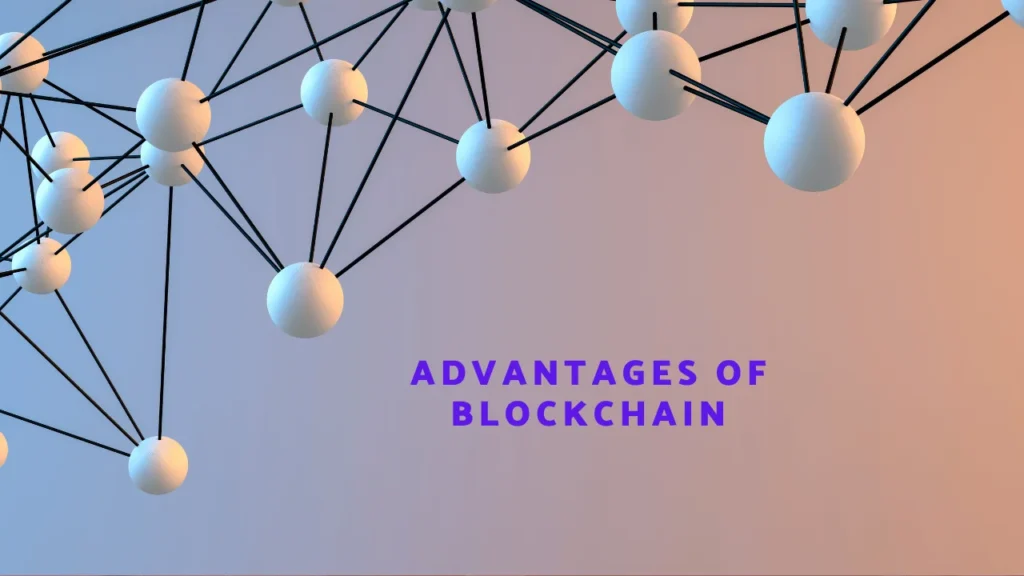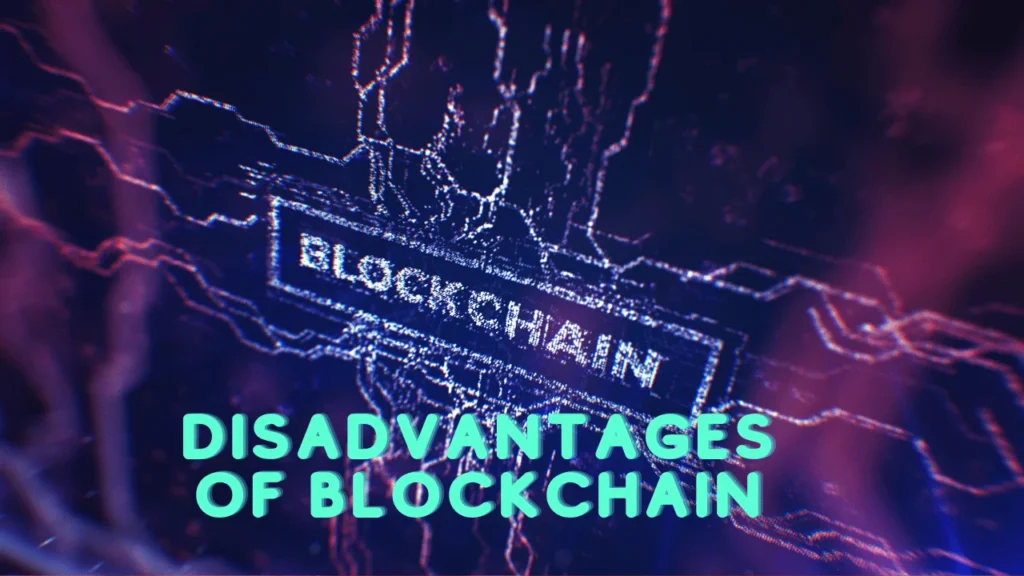A giant leap forward in the management of digital transactions has occurred with the advent of blockchain technology. Blockchain is a shining example of efficiency, transparency, and security that is closing gaps in many different industries, including healthcare and finance. The advantages and disadvantages of blockchain are pivotal considerations as this ground-breaking technology has many potential benefits that could alter whole markets, but it also has some drawbacks that should be carefully considered. It is critical to have a well-rounded view of the possible effects of blockchain technology on our digital future as we explore this complex realm, so that we can see things from all angles.
Advantages of Blockchain

Decentralization Increases System Resilience
Distributing data across many nodes globally, as blockchain does, makes the system more resistant to failures and cyber-attacks. This configuration provides a strong substitute for conventional centralized systems by eliminating potential weak points in the network.
Stable and Immutable Record of Transactions
This innovation guarantees that no one can remove or change a transaction once it has been recorded on the blockchain. Financial transactions, legal agreements, and any situation requiring historical accuracy require an audit trail, and this immutability provides one.
Elimination of Intermediaries
Blockchain technology greatly improves efficiency and decreases transaction costs by allowing direct transactions between users, eliminating the need for middlemen. By cutting out the need for intermediaries like banks in financial transactions, this trustless nature streamlines processes and has the ability to transform industries.
Significant Cost Reductions
There are ways to drastically cut operational and transaction costs with blockchain technology. Organizations can increase their competitiveness in the market and pass the savings on to customers by cutting out middlemen and simplifying their processes.
Enhanced Security and Privacy
Blockchain ensures users’ data is secure and private by utilizing advanced encryption techniques and operating on a decentralized network. Offering some measure of security and trust in online transactions is very important in this day and age of widespread data breaches and privacy worries.
Disadvantages of Blockchain

Scalability Issues
Blockchain networks frequently encounter difficulties with scalability as they expand. Due to design constraints, the technology can only handle a certain number of transactions per second, which could cause delays as demand grows.
High Energy Consumption in Mining Activities
Energy consumption is high due to the computational power required by Proof of Work, a common consensus mechanism in blockchain. This environmental issue is a major downside, which is why we are looking for consensus mechanisms that use less energy.
Legal and Regulatory Hurdles
Complex legal and regulatory issues arise from blockchain’s decentralized and borderless nature. The lack of a unified regulatory framework and jurisdictional discrepancies pose uncertainties that could impede the adoption and integration of blockchain with existing systems.
Technological Complexity and User Adoption
One potential obstacle to blockchain technology’s broad adoption is its inherent complexity. For it to go beyond specialized uses and into the mainstream, more education and user-friendliness are essential.
Security Concerns: The Risk of 51% Attacks
Blockchain may be secure in theory, but it is not bulletproof. It is possible to manipulate transactions through a 51% attack, in which one entity controls most of the network’s mining power; however, such attacks are expensive and less likely to succeed on bigger networks.
Must visit: Blockchain Roadmap: Unlocking the Future
Frequently Asked Questions
How Does Blockchain Ensure Data Decentralization and Security?
Distributing data across a decentralized network of nodes makes blockchain extremely resilient to failures and cyberattacks. Data and transactions are protected by this decentralization and cutting-edge encryption, which promotes honesty and reliability.
What Are Blockchain Audit Trails?
Blockchain audit trails are the complete and unchangeable record of transactions. A secure, immutable history is created with each transaction being timestamped and linked to the one before it. This history can be verified by anyone on the network.
Can Blockchain Reduce Transaction Costs?
Businesses and consumers alike can benefit from blockchain’s ability to streamline processes and cut out middlemen, which in turn lowers transaction costs.
What Is the Impact of Hard Forks on Blockchain Networks?
Discord and new blockchains can break out when the protocol undergoes a hard fork, which involves modifications that are incompatible with older versions of the software. The network may become more fragmented and uncertain as a result, even though they enable substantial updates and improvements.
How Can Blockchain Technology Enhance Privacy?
Encryption and pseudonymous transactions are two ways in which blockchain technology improves privacy. There is a happy medium between openness and privacy provided by the blockchain, which records transaction details while allowing users to remain anonymous.
Conclusion
Finally, blockchain technology is fraught with intriguing paradoxes, offering both great promise and formidable obstacles. With features like decentralization, improved security, and the removal of intermediaries, it has the potential to revolutionize industries and revolutionize the way we do business. Problems with scalability, excessive energy consumption, unclear laws and regulations, and complicated technology are just a few of the obstacles that lie ahead. However, amidst these challenges, there are significant Advantages and Disadvantages of Blockchain. Regardless, blockchain technology is constantly evolving to fix its flaws and capitalize on its strengths, so it could soon be an essential part of our digital infrastructure. A more open, efficient, and secure digital world can be created by embracing blockchain technology and learning to navigate its intricacies. The real potential of blockchain technology, which has the ability to transform numerous industries and pave the way for a new age of digital transactions, will become apparent as our understanding of it grows through research and development.

Brandy Stewart, an enchanting wordsmith and seasoned blogger, weaves compelling narratives that transport readers to uncharted territories. Infused with perceptive viewpoints and dynamic storytelling, Doris exhibits a command of language that enthralls both hearts and minds, leaving a lasting mark on the literary panorama.

